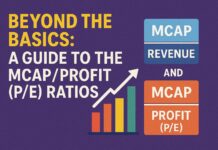What Survives When Money Fails: A Comprehensive Analysis of Economic Resilience
When traditional monetary systems collapse, societies are forced to rediscover fundamental truths about value, exchange, and survival. Historical examples from Weimar Germany’s hyperinflation to Venezuela’s ongoing economic crisis reveal consistent patterns in what endures when paper money becomes worthless. This analysis examines the tangible assets, social structures, and survival mechanisms that persist through monetary breakdown, offering insights for understanding economic resilience in an era of growing financial instability.

Gold Price Performance During Economic Crises (2000-2024)
The Historical Pattern of Monetary Collapse
Lessons from Weimar Germany
The hyperinflation crisis in Weimar Germany between 1921 and 1923 provides one of history’s most documented examples of monetary collapse[1][2]. By November 1923, one US dollar was worth 4,210,500,000,000 marks, rendering the currency essentially worthless[2]. During this period, certain groups and assets demonstrated remarkable resilience while others suffered devastating losses.

Men pushing wheelbarrows filled with paper money during Weimar Germany’s hyperinflation crisis.
Farmers emerged as relative winners during the Weimar hyperinflation because they could sell their goods at constantly increasing prices and pay off debts with rapidly depreciating currency[1]. Union workers also fared better than expected, as they possessed bargaining power to demand wage increases that matched inflation rates[1]. Meanwhile, the middle class suffered tremendously as their savings and fixed incomes became worthless overnight[1].
Modern Examples: Venezuela and Zimbabwe
Venezuela’s economic collapse since 2013 has created conditions similar to historical hyperinflation episodes[3][4]. With inflation reaching 80,000% annually by 2018, Venezuelans have been forced to develop alternative survival strategies[3]. The crisis has led to widespread adoption of barter systems, with people trading fish for flour and other essential goods in coastal communities[3][5].
Zimbabwe’s experience with hyperinflation reaching 80 billion percent per month in 2008 demonstrates how societies adapt when money fails[6][7]. The country eventually abandoned its currency entirely in 2009, adopting foreign currencies including the US dollar[6]. This dramatic shift illustrates how monetary systems can completely break down and be replaced by more stable alternatives.
Physical Assets: The Foundation of Real Value
Precious Metals as Monetary Anchors
Gold and silver have consistently maintained their roles as stores of value throughout monetary crises[1][8][9]. During hyperinflation periods, precious metals typically outperform stocks, bonds, and other paper assets when adjusted for inflation[1]. The relationship between precious metals and currency devaluation is well-established, with gold prices often rising dramatically during periods of monetary instability[9].

Physical gold bars and gold and silver coins as tangible assets that retain value when traditional money fails.
Recent gold performance supports this historical pattern, with prices breaking through the $2,000 per ounce resistance level and advancing to record highs[8][9]. Central banks worldwide have been accumulating unprecedented amounts of gold, adding over 1,000 tonnes annually to their reserves in recent years[9]. This institutional buying suggests preparation for potential currency instability at the highest levels of global finance.
Real Estate and Tangible Property
Real estate and other hard assets typically maintain value better than cash during hyperinflation[1]. Property owners can pay off mortgages with devalued currency while retaining the tangible asset[1]. However, real estate faces risks from government intervention, taxation, and potential confiscation during severe economic crises.
Tools and Production Equipment
Tools, machinery, and production equipment represent critical survival assets during economic collapse[1]. These items enable individuals to produce goods and services that remain valuable regardless of monetary conditions. The ability to repair, build, and create becomes essential when normal supply chains break down.
Skills and Knowledge: Irreplaceable Human Capital
Agricultural and Food Production Skills
Agricultural knowledge emerges as perhaps the most valuable skill during economic collapse[1][10][11]. The ability to produce food provides both personal security and tradeable value in any economic system. Farmers in Weimar Germany thrived because they controlled essential resources that maintained value regardless of currency conditions[1].
Local food production becomes critical when global supply chains fail[10][11]. The COVID-19 pandemic highlighted vulnerabilities in centralized food systems, with supply chain disruptions forcing communities to rely more heavily on local agriculture[11]. Urban farming and community gardens represent practical adaptations to these challenges.
Medical and Technical Skills
Medical knowledge and technical skills retain high value during economic crises[12]. Healthcare needs persist regardless of monetary conditions, making medical professionals valuable in any economic system. Similarly, technical skills required for maintaining infrastructure, utilities, and communications remain essential during breakdowns in normal economic activity.
Artisan and Craft Skills
Traditional craft skills gain renewed importance when mass-produced goods become unavailable or unaffordable[13]. The ability to create clothing, furniture, tools, and other necessities provides both personal security and tradeable value. These skills become particularly valuable in barter-based economies that emerge during monetary collapse.
Social Capital and Community Networks
The Power of Mutual Aid
Mutual aid networks demonstrate remarkable resilience during economic crises[14][15][16]. These voluntary, collaborative exchanges of resources and services operate independently of monetary systems, providing essential support when formal institutions fail[14]. During the COVID-19 pandemic, mutual aid networks filled critical gaps in institutional support, offering food distribution, childcare, and other essential services[16][17].

Community members in Sudan gather to receive food through a local mutual aid network, demonstrating solidarity and support beyond monetary means.
Social capital, defined as networks of relationships that enable communities to function effectively, proves crucial for survival during economic breakdown[18][19]. Communities with strong social bonds, trust, and reciprocity demonstrate greater resilience to external shocks[18]. These networks facilitate resource sharing, collective action, and mutual support that transcends monetary exchange.
Family and Community Bonds
Family networks consistently rank among the most reliable support systems during economic crises[18]. Extended family relationships provide safety nets that operate independently of formal economic institutions. Similarly, tight-knit communities with established patterns of cooperation and mutual assistance demonstrate superior survival rates during breakdowns in normal economic activity.
Barter and Alternative Exchange Systems
Barter systems naturally emerge when traditional currency fails[13][20]. These direct exchanges of goods and services operate without monetary intermediation, allowing communities to maintain commerce despite currency collapse[13]. Modern examples include time banks, local exchange systems, and community currencies that provide alternatives to failed national monetary systems.
Historical precedent shows that barter systems can scale to significant levels during monetary crises. During the 2008 financial crisis, barter exchanges in the United States reported double-digit increases in membership due to scarcity of traditional currency[13].
Basic Necessities: The Survival Essentials
Food Security and Water Access
Access to food and clean water represents the most fundamental survival requirement during economic collapse[21][22]. Communities with reliable local food production and water sources demonstrate superior resilience to external economic shocks[22]. The global food crisis exacerbated by climate change, conflicts, and supply chain disruptions highlights the vulnerability of food systems dependent on complex international trade[21].
Shelter and Security
Secure shelter provides essential protection during periods of social and economic instability[23]. Property ownership offers advantages during currency collapse, though it may also attract unwanted attention from desperate individuals or predatory governments. The ability to defend and maintain shelter becomes crucial when law enforcement systems are overwhelmed or compromised.
Healthcare and Medicine
Access to medical supplies and healthcare remains critical during economic breakdown[11]. Communities with local medical knowledge, supplies, and facilities demonstrate better survival outcomes than those dependent on distant healthcare systems. Traditional medicine and herbal remedies gain renewed importance when modern pharmaceutical supply chains fail.
What Fails: The Vulnerability of Paper and Digital Assets
Traditional Financial Instruments
Bank savings, government bonds, and stock certificates demonstrate extreme vulnerability during monetary collapse[1][23]. These paper assets derive their value from the stability of underlying monetary and political systems. When these systems fail, paper assets often become worthless regardless of their nominal value.
Cash holdings face similar risks during hyperinflation, as physical currency rapidly loses purchasing power[1][5]. The experience of wheelbarrows full of money in Weimar Germany illustrates the practical impossibility of using devalued currency for normal transactions[24].
Digital Vulnerabilities
Digital banking systems and online assets face unique risks during economic collapse[12]. These systems depend on functioning electrical grids, internet connectivity, and institutional stability. During severe crises, digital infrastructure may fail or be deliberately shut down, making digital assets inaccessible.
Cryptocurrency presents a mixed picture, with potential for both preservation and loss of value[25]. While some cryptocurrencies may retain value during fiat currency collapse, they remain dependent on digital infrastructure and face regulatory risks from desperate governments.
Modern Implications and Preparedness Strategies
Building Economic Resilience
The lessons from historical monetary collapses suggest several strategies for building personal and community resilience. Diversification across asset classes, with emphasis on tangible assets and essential skills, provides protection against monetary system failure. Community building and social capital development create support networks that transcend economic systems.
Investment in local food production, whether through personal gardens or community agriculture projects, provides both security and valuable skills[22]. Similarly, development of practical skills like basic medical care, repair work, and food preservation creates value that persists regardless of monetary conditions.
The Role of Government and Institutions
Government responses to monetary crisis vary widely in effectiveness[26][27]. Some interventions, such as currency stabilization measures and foreign exchange arrangements, can restore monetary stability. However, governments may also implement counterproductive policies like price controls, capital controls, and confiscation of assets that worsen economic conditions.
Institutional preparation for monetary crisis involves maintaining adequate foreign reserves, implementing sound fiscal policies, and developing contingency plans for currency failure[26]. Countries with stronger institutions and more diversified economies typically demonstrate better resilience to monetary shocks.
Conclusion: Preparing for an Uncertain Future
The study of what survives when money fails reveals fundamental truths about value, community, and resilience. Physical assets, essential skills, and strong social networks consistently outperform paper wealth during monetary collapse. Communities that maintain local production capabilities, mutual aid networks, and diverse survival skills demonstrate superior resilience to external economic shocks.
As global economic imbalances continue to grow and monetary systems face increasing stress, understanding these survival mechanisms becomes increasingly relevant. The transition from complex financial instruments to basic necessities and human relationships represents a return to fundamental economic realities that have sustained human societies throughout history.
The most robust strategy for surviving monetary collapse involves diversification across multiple domains: physical assets for wealth preservation, essential skills for value creation, and social networks for mutual support. These elements, combined with basic necessities like food, water, and shelter, form the foundation of economic resilience that transcends any particular monetary system.
Whether facing hyperinflation, currency collapse, or complete economic breakdown, the assets and systems that survive share common characteristics: they provide real value independent of monetary intermediation, they meet basic human needs, and they operate through direct human relationships rather than complex institutional structures. In an age of growing economic uncertainty, these time-tested survival mechanisms offer both practical guidance and historical perspective on humanity’s capacity for adaptation and resilience.
- https://www.newtraderu.com/2023/11/07/lessons-from-weimar-germany-on-surviving-hyperinflation/
- https://en.wikipedia.org/wiki/Hyperinflation_in_the_Weimar_Republic
- https://globalresilience.northeastern.edu/the-venezuela-crisis-foreign-aid-social-cohesion-and-economic-resilience/
- https://www.nytimes.com/2019/05/17/world/americas/venezuela-economy.html
- https://www.reuters.com/article/business/fish-for-flour-barter-is-the-new-currency-in-collapsing-venezuela-idUSKBN1JT1RZ/
- https://en.wikipedia.org/wiki/Hyperinflation_in_Zimbabwe
- https://www.tandfonline.com/doi/full/10.1080/00036846.2024.2403780
- https://edge-forex.com/how-doomsday-preppers-gold-and-silver-became-survival-assets/
- https://discoveryalert.com.au/news/gold-global-economic-crisis-financial-2025/
- https://www.farmaid.org/issues/industrial-agriculture/understanding-economic-crisis-family-farms-are-facing/
- https://pmc.ncbi.nlm.nih.gov/articles/PMC11048076/
- https://www.econstor.eu/bitstream/10419/262203/1/Working-paper-22-01.pdf
- https://en.wikipedia.org/wiki/Barter
- https://climateresilienceproject.org/strategies/mutual-aid/
- https://focities.com/mutual-aid-and-community-in-times-of-crisis-building-together/
- https://pmc.ncbi.nlm.nih.gov/articles/PMC8653332/
- https://convergencemag.com/articles/we-care-for-each-other-we-fight-for-each-other-mutual-aid-and-power-building/
- https://pmc.ncbi.nlm.nih.gov/articles/PMC2956751/
- https://en.wikipedia.org/wiki/Social_capital
- https://noblegoldinvestments.com/learn/blog/bartering-during-an-economic-collapse/
- https://www.imf.org/en/Blogs/Articles/2022/09/30/global-food-crisis-demands-support-for-people-open-trade-bigger-local-harvests
- https://www.edengreen.com/blog-collection/global-food-insecurity-how-local-farming-amp-hydroponic-greenhouses-can-address-the-problem
- https://en.wikipedia.org/wiki/Economic_collapse
- https://www.savemyexams.com/gcse/history/edexcel/24/modern-depth-study-paper-3/revision-notes/weimar-nazi-germany-1918-39/the-weimar-republic-1918-29/hyperinflation-in-germany-1923/
- https://www.tataneu.com/pages/travel/flights/10-ways-to-convert-zimbabwe-currency-to-inr-easily
- https://www.elibrary.imf.org/view/journals/087/2010/006/article-A001-en.xml
- https://www.britannica.com/place/Weimar-Republic/Toward-stabilization
- https://en.wikipedia.org/wiki/Economy_of_Venezuela
- https://www.cato.org/sites/cato.org/files/serials/files/cato-journal/2011/5/cj31n2-9.pdf
- https://www.smithsonianmag.com/history/how-hyperinflation-heralded-the-fall-of-german-democracy-180982204/
- https://www.economicsobservatory.com/why-did-venezuelas-economy-collapse
- https://www.theholocaustexplained.org/the-nazi-rise-to-power/the-weimar-republic/invasion-of-the-ruhr/
- https://www.cfr.org/backgrounder/venezuela-crisis
- https://zepari.co.zw/sites/default/files/2018-09/Currency Reform in Zimbabwe An Analysis of Possible Options.pdf
- https://en.wikipedia.org/wiki/Crisis_in_Venezuela
- https://www.bbc.co.uk/bitesize/guides/z9y64j6/revision/6
- https://eightfold.ai/wp-content/uploads/Exec-Brief-Skills-are-the-key-to-successfully-navigating-a-recession.pdf
- https://study.com/academy/lesson/bartering-systems-definition-lesson-quiz.html
- https://www.stmpl.co.in/job-crisis-and-the-skills-gap-how-vocational-training-can-build-a-future-ready-workforce/
- https://www.weforum.org/stories/2023/08/skill-inflation-what-is-it-and-how-to-avoid-becoming-victim-to-it/
- https://www.investopedia.com/terms/b/barter.asp
- https://en.wikipedia.org/wiki/Mutual_aid
- https://campbellcollege.ca/blog/why-an-economic-downturn-is-a-great-time-to-upgrade-your-skills/
- https://margcompusoft.com/m/barter-system/
- https://www.momscleanairforce.org/mental-health-climate-change-mututal-aid/
- https://www.oecd.org/en/topics/sub-issues/changing-skill-needs-in-the-labour-market.html
- https://www.masterclass.com/articles/barter-economy
- https://commongood.cc/reader/survival-through-mutual-aid-pr/
- https://journalajeba.com/index.php/AJEBA/article/view/1595
- https://goldsurvivalguide.co.nz/silver-coins-currency-collapse-nz/
- https://economictimes.com/news/international/us/robert-kiyosaki-warns-of-a-greater-depression-in-2025-why-investing-in-bitcoin-gold-and-silver-could-save-your-wealth-as-u-s-debt-and-unemployment-surge/articleshow/120701803.cms
- https://www.sciencedirect.com/science/article/pii/S1056819023001367
- https://www.imf.org/en/Publications/fandd/issues/2023/03/gold-silver-monetary-stability-johannes-wiegand
- https://www.un.org/esa/socdev/rwss/docs/2011/chapter4.pdf
- https://www.sciencedirect.com/science/article/abs/pii/S1544612325016265
- https://www.reddit.com/r/investing/comments/1cw321c/gold_as_hedge_against_collapse/
- https://www.worldbank.org/en/topic/agriculture/brief/food-security-update
- https://rmets.onlinelibrary.wiley.com/doi/full/10.1002/cli2.70012
- https://www.goldmarket.fr/en/Are-gold-jewelry-a-tangible-asset-in-an-economic-crisis/
- https://ipes-food.org/the-global-food-crisis-in-the-age-of-catastrophe/
- https://ppl-ai-code-interpreter-files.s3.amazonaws.com/web/direct-files/9fcfc1df3cec1feddd919a10c6a91a05/eda3c9bc-09fc-49af-bcf6-a8aeabc5ebed/8121df5c.csv




















